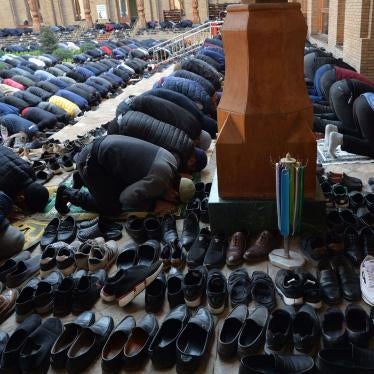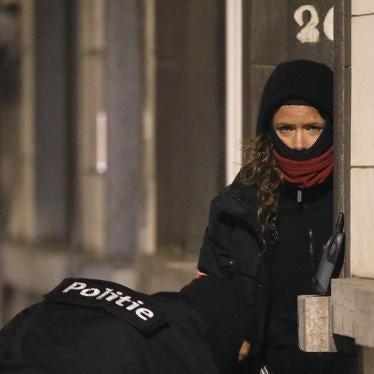Counterterrorism proposals aimed at preventing British citizens from becoming foreign fighters with groups such as Islamic State (ISIS) were announced by UK Prime Minister David Cameron on Friday. Unless accompanied by strict safeguards, these measures risk undermining human rights and could prove counterproductive.
The most worrying is a two-year ban on UK citizens from returning to the UK if there is a “reasonable suspicion of [their] involvement in terrorist activity.” Media reports suggest people would only be able to return to the UK if they surrender to the authorities for prosecution, close monitoring by police, or participating in a de-radicalization course. Police would also be given the power to confiscate the passports of British citizens suspected of planning to travel abroad to join armed groups.
The measures, which the government will introduce in a new bill this month, raise many questions: How will evidence of “involvement in a terrorist activity” be gathered? Will suspects be able to see that evidence and challenge it before a court of law? Will bans be subject to renewal and, if so, how? From a practical perspective, how will keeping a British citizen in a conflict zone deter him or her from continued involvement with groups like ISIS? Above all, is the government intending to flout the basic right of all to return to their own country of citizenship, first set out in the 1948 Universal Declaration on Human Rights?
Cameron’s announcement comes amid rising concern about Western citizens travelling overseas to fight for armed groups. But governments have responded with problematic counterterrorism policies that undermine human rights, including in France and Australia.
Media reports also suggest that the new bill could become law by January. Such a short timeframe will make it difficult for parliamentarians and the public to consider these measures carefully.
The International Covenant on Civil and Political Rights, to which the UK is a party, prohibits arbitrarily banning people from leaving or entering a country, and gives legal force to the basic right of all to enter their own country. Prohibiting people from returning for years at a time could effectively render them stateless.
Members of parliament should make sure guarantees are in place so that any restrictions on travel or re-entry are proportionate to the aim of protecting national security, and that people can challenge them effectively and fairly before a judge. Any restrictions should be subject to regular parliamentary review and be time-limited. The right of all British citizens to enter the UK should be respected and de facto statelessness needs to be avoided.
The UK government has a duty to guarantee the rights of all its citizens and people within its borders, including their right to security. But in doing so it needs to also respect the rights of all against arbitrary and sweeping government restrictions on their lives even if they are suspected of involvement in terrorism. Failing to do so will only serve the interest of extremists.









